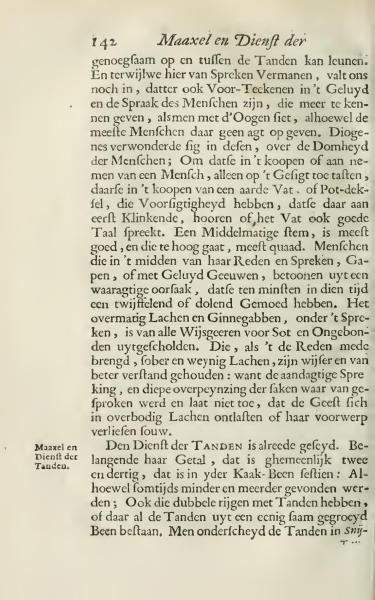Maxim and Function of the Teeth
The teeth firmly rest and support speech. While speaking and giving advice, we realize there are many expressions and sounds of speech that reveal more when seen visually, though most people do not notice them. Diogenes remarked upon this, observing the foolishness of people; they judge only by appearance when meeting someone, but use caution when buying a clay pot, listening to the sound it makes to see if it is a good vessel. A moderate voice is usually best; one that is too high or low is not desired. People yawning or making sounds in the middle of their speech reveal an inner uncertainty or unsettled mind. Excessive laughter and giggling during speech are considered foolish by all philosophers. Those who are sober and laugh sparingly are seen as wiser and of better understanding, for careful speaking and deep reflection on discussed matters do not allow the mind to indulge in excessive laughter or lose focus.
The function of the teeth has already been stated. Regarding their number, it is usually thirty-two, with sixteen in each jawbone, although sometimes more or less may be found; also, some have double rows of teeth, or teeth grown together as a single bone. Teeth are identified as incisors.
Translation Notes
"Kaak-Been" refers to jawbone. "Diogenes" is a reference to the ancient Greek philosopher noted for his wisdom and way of observing human behaviors.
The text discusses how teeth support speech and notes the indicators of sound in evaluating expressions. Diogenes observed the irony in people's reliance on appearance over substance, emphasizing the importance of sound judgment. The text then details the typical count and function of teeth in the jaw.
